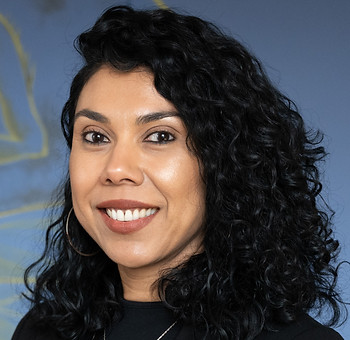KEYNOTE SPEAKER

Building Sustainable and Resilient Cannabis sativa Production:
Trends, Challenges, and Future Perspectives
Presented by Punya Nachappa, PhD
The global cultivation of Cannabis sativa is expanding for medicinal, industrial, and recreational purposes. However, this intensive production raises concerns about environmental sustainability, as well as pest and disease management. My research program is driven by a vision to promote food security and sustainability through a systems-level approach. In my presentation, I will highlight two ICR-funded projects: the first focuses on developing genetic resistance to pests in hemp, while the second examines the interaction between pesticide application and pest populations, along with the persistence of chemical residues in hemp flowers. Finally, I will discuss the importance of student engagement and collaboration with agricultural stakeholders in co-creating knowledge bases that address the challenges facing the hemp industry.
ABOUT THE PRESENTER:
Dr. Punya Nachappa is an accomplished scholar with a strong interdisciplinary portfolio in research, teaching, and extension. She received her Bachelor of Science degree in agriculture from the University of Agricultural Sciences in India. She obtained an MS degree in entomology from the University of Georgia and a PhD in entomology from Kansas State University. After completing her PhD, she served as a postdoctoral researcher at K-State and Texas A&M University. Currently, she is an Associate professor at Colorado State University in the Department of Agricultural Biology. Her research program focuses on understanding the interactions between plants and insect vectors to manage plant pests and diseases in hemp. She has authored over 55 publications, including pioneering articles in Cannabis sativa virology. She has secured over 15 million in federal and state funding and has won awards for her Contributions to Hemp Research and Scholarship. Her research is funded by USDA NIFA, FFAR, and the Institute of Cannabis Research. Her teaching contributions are student-centered and community-oriented, focusing on both classroom instruction and mentorship. She has trained nearly 77 personnel in her lab, including research scientists, post-docs, PhD, and MS students. She is passionate about undergraduate student training and had mentored 50 undergraduate students. In parallel, her extension efforts have resulted in 43 publications and over 60 outreach presentations aimed at stakeholders that have expanded the public impact of her work.




